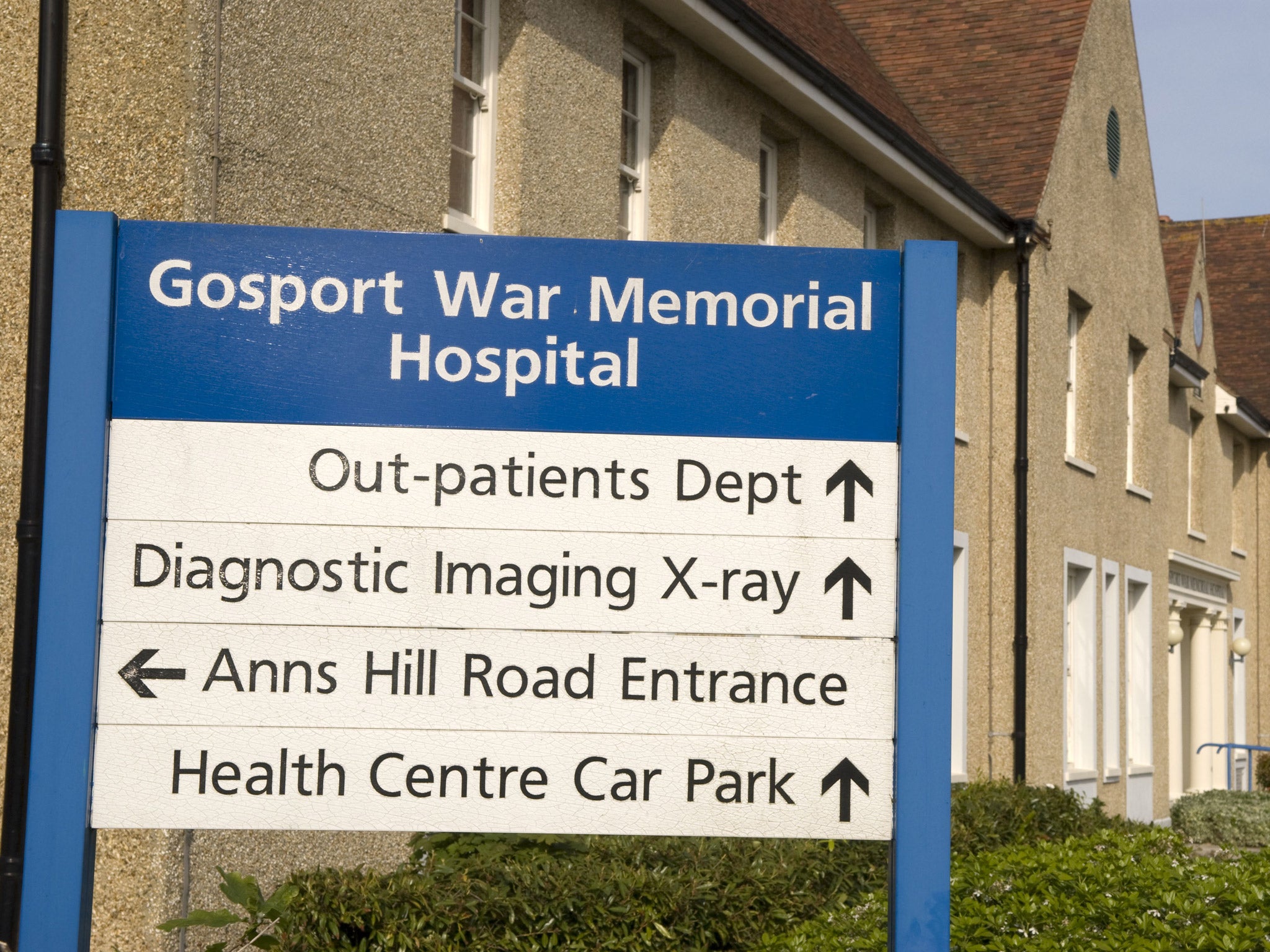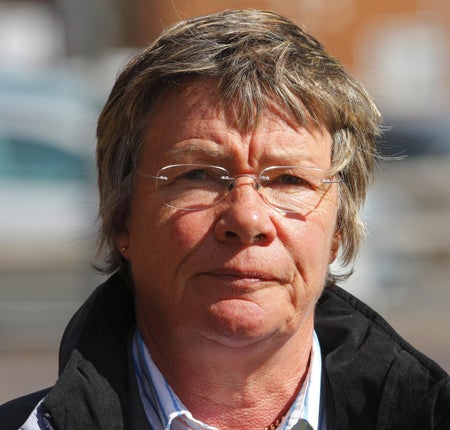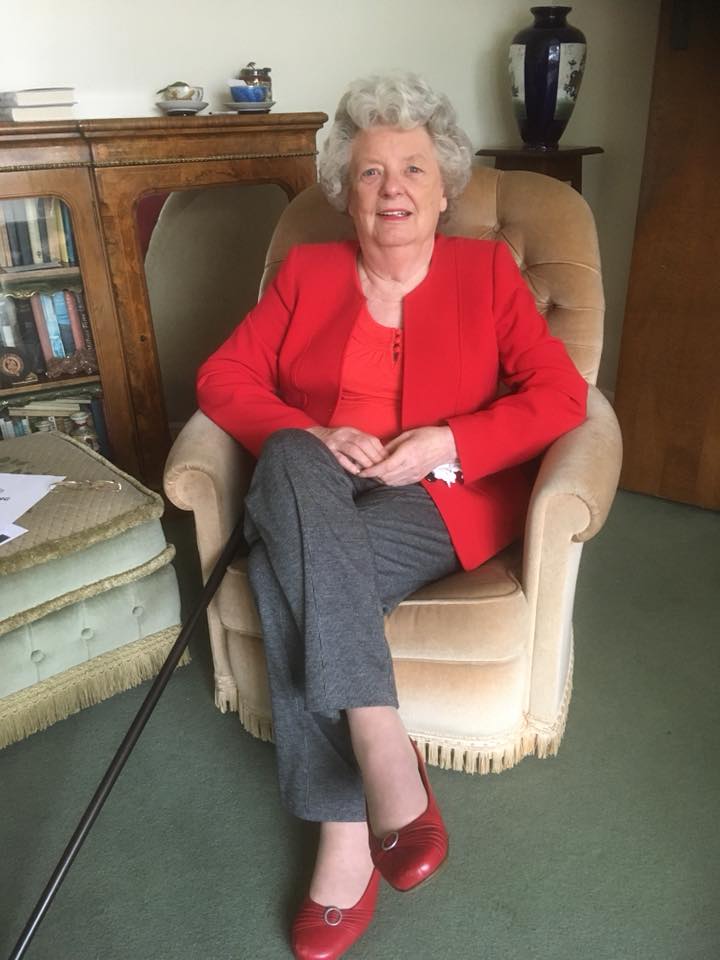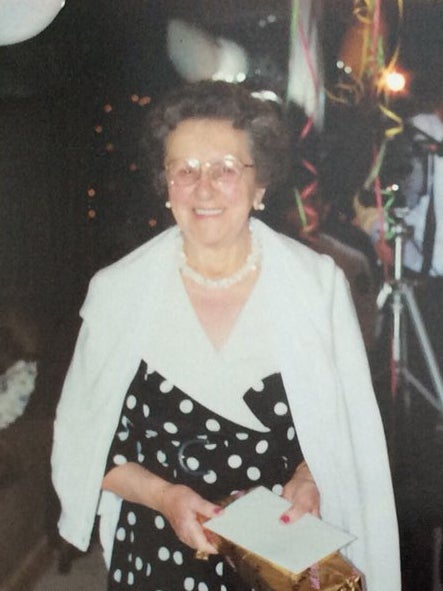Gosport hospital scandal: Families hope inquiry into more than 800 deaths will lead to prosecutions in 20-year struggle for justice
Families call for GP accused of being responsible 'for at least 92 deaths' to face criminal charges

Your support helps us to tell the story
From reproductive rights to climate change to Big Tech, The Independent is on the ground when the story is developing. Whether it's investigating the financials of Elon Musk's pro-Trump PAC or producing our latest documentary, 'The A Word', which shines a light on the American women fighting for reproductive rights, we know how important it is to parse out the facts from the messaging.
At such a critical moment in US history, we need reporters on the ground. Your donation allows us to keep sending journalists to speak to both sides of the story.
The Independent is trusted by Americans across the entire political spectrum. And unlike many other quality news outlets, we choose not to lock Americans out of our reporting and analysis with paywalls. We believe quality journalism should be available to everyone, paid for by those who can afford it.
Your support makes all the difference.A public inquiry into the deaths of more than 800 of patients at one NHS hospital will expose how many died after they were prescribed lethal opiates.
The investigation will also examine the failure of health chiefs and the police to investigate the scandal at Gosport War Memorial Hospital in Hampshire.
After a 20 year struggle to have their concerns taken seriously, the families of those who died at say they hope the report will at last lead to criminal prosecutions.
Much of the inquiry will focus on the prescribing of diamorphine, the medical name for heroin, and other powerful opiates by GP Dr Jane Barton and other staff at the hospital between 1988 and 2000.
A 2013 review of care at the hospital found “almost routine use of opiates” on wards but couldn’t say when the practice began.
The families believe these drugs were used by stretched staff to keep their loved ones sedated.
On Wednesday, the Gosport Independent Panel, chaired by the Bishop of Liverpool, James Jones, who also led the Hillsborough inquiry, will publish the most wide-ranging review to date on the deaths.
This is thought to include 833 deaths certified by Dr Barton while at the hospital, including 92 previously investigated by Hampshire Police where no prosecutions were brought.
Failings, delays and inconsistencies throughout the hospital, police and GMC investigations have left families feeling the institutions meant to protect their loved ones and other patients had closed ranks.
Some have previously suggested their complaints were played down to prevent another NHS scandal.
The problems came after the illegal harvesting of organs at Alder Hey Children’s Hospital and GP Harold Shipman’s conviction for the murder of 15 patients in 2000.

The General Medical Council found Dr Barton guilty of “serious professional misconduct” in 2010 after a fitness to practise panel review into the deaths of 12 of the patients in her care.
It said her prescribing had been “excessive, inappropriate and potentially hazardous,” but she was allowed to keep her medical licence and she retired shortly afterwards.
At the hearing, Dr Barton said: “I was faced with an excessive and increasing burden in trying to care for patients at the Gosport War Memorial Hospital. I did the best that I could for them in the circumstances.”
The public inquiry, which began in 2014 and has been backed by £13m in public money, appealed widely for families with concerns to come forward. The number of cases under investigation tripled as a result.
Gillian McKenzie was the first person to go to the police with concerns about the death of her 91-year-old mother, Gladys Richards, in 1998.
“I really don’t mind if my mother’s case doesn’t get into the criminal court – I probably won’t live that long anyway – but I’d like 15 of the strongest cases to get in, and put that women where she belongs,” Ms McKenzie, 84, told The Independent.

With her sister Leslie, she had written to Gosport War Memorial Hospital with concerns about how Gladys was being cared for when she was recovering from surgery on a broken hip. They sent the letter on 17 August 1998, but by 21 August, Gladys was dead.
“I’m not stupid, my mother was 91 and quite honestly, I wouldn’t have been surprised if she hadn’t come out of theatre alive – but she did,” Ms Richards said.
Her mother had gone to Gosport War Memorial on 11 August because Ms McKenzie did not want her returning to the nursing home where her injury, from a lunchtime fall, had gone unnoticed for some time.
Ms Richards said: “I called the following evening and my sister was in tears. ‘They’ve sedated her,’ she said.
“She’d gone in and mother didn’t know what day of the week it was. My sister asked ‘what have you given her’ and was told ‘oramorph’ – which is diamorphine in liquid form.
“It wasn’t until a year later we got hold of the medical file. Barton had written up, when my mother arrived: ‘A frail elderly lady, not obviously in pain. Please make comfortable, I am quite happy for nursing staff to confirm death.’”
“She wasn’t there for palliative care, she was there for rehabilitation while I found a nursing home. She was not in pain, she was walking with her zimmer.”
On 26 September, after Gladys had been cremated, they received a response from the hospital saying her mother had died of natural causes.
“I rang my sister and said: ‘This is absolute rubbish’. The letter says my mother had died of pneumonia, and there was no sign of it.
“I have heard dying patients who do have pneumonia, that awful gurgling sound. There was no sound whatsoever.”
Ms McKenzie refused to accept this verdict, prompting the first NHS investigation and two police reviews. She remains convinced the failings at Gosport were criminal.

While it is not in the remit of the Gosport Independent Panel to recommend cases to the Crown Prosecution Service, the families believe the combined evidence they have unearthed in the past two decades, and the scope of the review being wider than ever before, they will now see justice.
“There is no doubt in my mind, with the evidence we have now that was withheld from us whilst driving us into the ground,” Ann Reeves told The Independent.
Her mother, Elsie Devine, was admitted to Gosport War Memorial with confusion and kidney problems. The 2009 inquest found she was inappropriately given doses of diamorphine, Midazolam and another tranquilliser, which contributed to her death.
“My lovely mum was a loving, gentle lady, delightful and loved by everyone,” Ms Reeves said. “My husband worked abroad so she was our rock, and made sure everyone was safe and happy.”
Ms Reeves says the organisations involved in Elsie’s death have the “utmost contempt for truthfulness” and have made the families fight for every scrap of evidence to be released.
On Wednesday, the families will hear from Bishop Jones at an event in Portsmouth Cathedral, with a statement expected from health and social care secretary Jeremy Hunt later that day.
Its findings and even the extent of the deaths or organisations being reviewed, are closely guarded.
A spokesperson for the panel said: “To engage publicly at this stage would be a betrayal of the families to whom we are committed to report first, as required by the Panel’s Terms of Reference.”
Despite this, those who have followed the families’ battle say the evidence they have seen points only one way and will be calling for action.
“This is potentially a game-changer,” said Stephen Lloyd, Liberal Democrat MP for Eastbourne, where Ms McKenzie is his constituent.
“Quite a lot of the inquiries have found questions about Dr Barton, and her team’s behaviour,” he told The Independent.
“The GMC found issues around ‘hazardous opiates’, but she’s not struck off. Hampshire Police had numerous enquiries that bizarrely have disappeared and keep getting pushed from pillar to post.”
“Twenty years on, almost to a month, we will find out on Wednesday whether as I believe but don’t know for sure, whether Dr Barton and some of the team around her potentially committed a crime.
“If it’s as strong as I and others believe I will be calling for a criminal inquiry in Parliament.”
Mr Lloyd brought the families to the then coalition government health minister Norman Lamb, who was also convinced by the evidence and says Wednesday’s report is vital to protecting future patients.
“I don’t rule out that you could have a repeat of this,” he told The Independent. “It is a scandal that families have been left in the dark for more than 15 years.”
“There was nothing in 2014 that I used to reach the conclusion that a proper investigation was needed, that others couldn’t have reached a lot earlier.
“That is, in my view, the scandal of the whole thing.”
Join our commenting forum
Join thought-provoking conversations, follow other Independent readers and see their replies
Comments